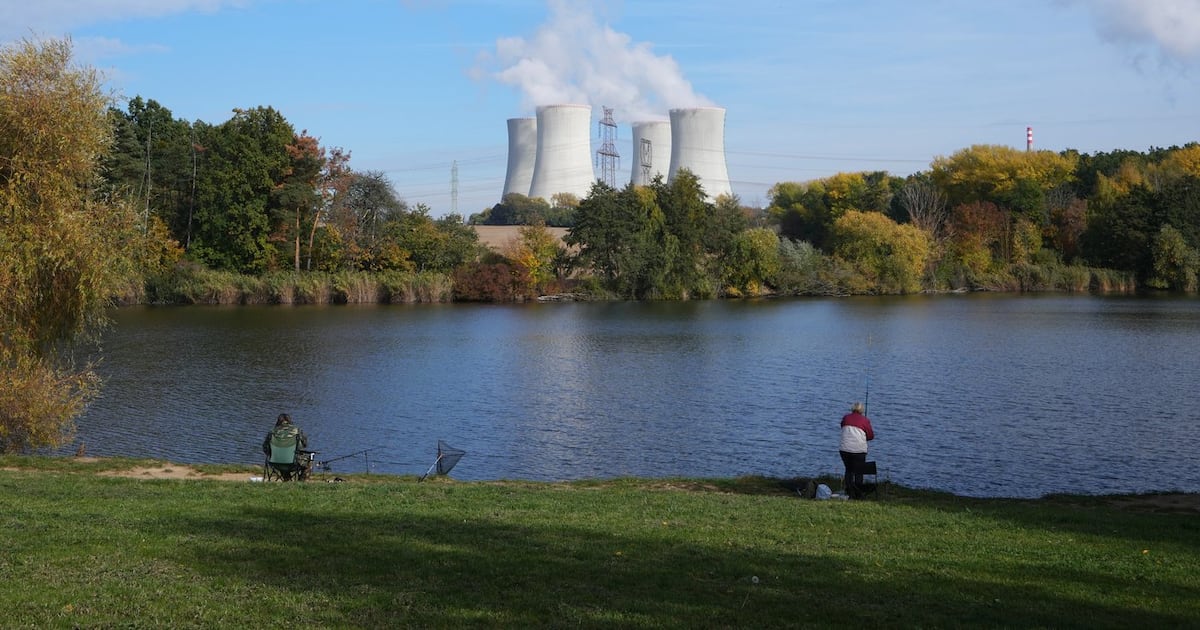Business
Czech Republic Commits US$19 Billion to Nuclear Energy Expansion

The Czech Republic is advancing its nuclear energy capabilities with a significant investment of approximately US$19 billion aimed at doubling its nuclear output. The expansion is set to take place at the Dukovany Nuclear Plant, which currently features four reactors from the 1980s. The project includes the construction of two new reactors, each with an output exceeding 1,000 megawatts, to be completed by the second half of the 2030s.
At the construction site, mobile drilling rigs are currently extracting geological samples from depths of 140 meters to ensure the site’s suitability for the ambitious project. South Korea’s KHNP secured the contract to build the new reactors, defeating France’s EDF in a competitive tender. The agreement also allows for the potential addition of two more units at the existing Temelín nuclear plant, which already operates two reactors of 1,000 megawatts each.
Strategic Energy Transition
The Czech government emphasizes that this nuclear expansion is essential for transitioning away from fossil fuels. According to Petr Závodský, chief executive of the Dukovany project, nuclear power is projected to generate between 50 percent and 60 percent of the country’s electricity by 2050. This shift is critical for meeting increasing electricity demands, driven by the growth of data centers and electric vehicles.
Závodský stated, “Nuclear will generate between 50 percent and 60 percent around 2050 in the Czech Republic, or maybe slightly more.” The government aims to secure a stable and cost-effective energy supply while adhering to stringent emissions targets as part of its climate commitments.
The recent resurgence of interest in nuclear power across Europe aligns with rising energy demands and the urgent need to reduce carbon emissions. Nuclear energy, while producing waste, does not emit greenhouse gases, making it an attractive option for nations seeking sustainable energy solutions. The European Union (EU) has recognized nuclear power’s role in sustainable development, thereby facilitating financing opportunities for member countries heavily reliant on nuclear energy.
Financial and Regulatory Framework
The Dukovany project is expected to cost over US$19 billion, with the Czech government planning to secure an 80 percent stake in the new plant. Financing will be structured through a loan that the state-owned power company CEZ will repay over a period of 30 years. Additionally, the government will guarantee a stable income from electricity production for CEZ for up to 40 years. This financial framework is anticipated to receive approval from the EU, which has set a target to become climate-neutral by 2050.
Závodský noted, “We’re in a good position to argue that we won’t be able to do without new nuclear units.” Currently, the Czech Republic derives about 40 percent of its electricity from nuclear power and a comparable amount from coal. The government recognizes the urgent need to replace coal generation to meet future energy needs sustainably.
Uncertainties surrounding financing previously stalled the nuclear expansion. In 2014, CEZ canceled a tender to build two reactors at Temelín due to a lack of financial guarantees from the government. Security concerns prompted the exclusion of Russian energy giant Rosatom and China’s CNG from the Dukovany tender following the Kremlin’s invasion of Ukraine.
CEZ has established partnerships with Westinghouse and France’s Framatome to supply nuclear fuel for its reactors, reducing reliance on Russian imports. The contract with KHNP ensures fuel supplies for the next ten years, further stabilizing the Czech Republic’s energy strategy.
While nuclear energy has garnered significant public support, opposition persists both domestically and internationally. Environmental groups, such as Friends of the Earth, argue that nuclear power is too costly and advocate for investments in renewable energy instead. Furthermore, the Czech Republic lacks a permanent storage solution for spent nuclear fuel, raising concerns among neighboring countries, particularly Austria, which abandoned nuclear energy after the 1986 Chernobyl disaster.
Austria remains skeptical of nuclear power, with its lower house of Parliament recently rejecting the Czech Republic’s small modular reactor plans. A historical dispute over the Temelín plant in 2000 heightened tensions between the two nations, resulting in blocked border crossings for weeks.
As the Czech Republic takes significant steps towards expanding its nuclear energy capacity, the outcome of this investment will play a pivotal role in shaping the country’s energy landscape and its commitment to sustainable practices in the coming decades.
-

 Science3 months ago
Science3 months agoToyoake City Proposes Daily Two-Hour Smartphone Use Limit
-

 Top Stories3 months ago
Top Stories3 months agoPedestrian Fatally Injured in Esquimalt Collision on August 14
-

 Health3 months ago
Health3 months agoB.C. Review Reveals Urgent Need for Rare-Disease Drug Reforms
-

 Technology3 months ago
Technology3 months agoDark Adventure Game “Bye Sweet Carole” Set for October Release
-

 World3 months ago
World3 months agoJimmy Lai’s Defense Challenges Charges Under National Security Law
-

 Lifestyle3 months ago
Lifestyle3 months agoVictoria’s Pop-Up Shop Shines Light on B.C.’s Wolf Cull
-

 Technology3 months ago
Technology3 months agoKonami Revives Iconic Metal Gear Solid Delta Ahead of Release
-

 Technology3 months ago
Technology3 months agoApple Expands Self-Service Repair Program to Canada
-

 Technology3 months ago
Technology3 months agoSnapmaker U1 Color 3D Printer Redefines Speed and Sustainability
-

 Technology3 months ago
Technology3 months agoAION Folding Knife: Redefining EDC Design with Premium Materials
-

 Business3 months ago
Business3 months agoGordon Murray Automotive Unveils S1 LM and Le Mans GTR at Monterey
-

 Technology3 months ago
Technology3 months agoSolve Today’s Wordle Challenge: Hints and Answer for August 19









